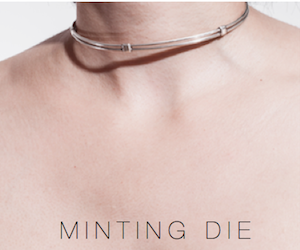
Wed, 06/01/2016 - 13:58 by karyn
Bands come and go all the time, but their impact can sometime last with listeners for years. Take, for instance, Head Wound City, the recently reunited post-hardcore supergroup comprising members of the Blood Brothers, Yeah Yeah Yeahs, and the Locust. When the quintet took their first kick at the can in the mid '00s, they quickly recorded an EP, played one show, and then got back to their regular duties. It wasn't supposed to be that big of a deal.
"We basically just existed for a week about ten years ago," vocalist Jordan Blilie tells ION over the line from his L.A. home. "We were all in bands that were writing, recording and touring quite heavily at the time, and this band's inception was basically to give us a brief vacation form the rigors of full time band life. We got together for about in a week in 2005 and wrote and recorded an EP, played one show, and called it a day."
Left with but an 11-minute collection of fully freaked-out, ear-bleeding spazz punk to hold onto, the faithful were left to wonder what it would've been like to be bruised by Head Wound City in the flesh. Blessedly, Yeah Yeah Yeahs guitarist Nick Zinner felt the same urge, and reached out to Blilie, drummer Gabe Serbian, guitarist Cody Votolato and bassist Justin Pearson to get together for a 2014 reunion show. This led to a full-on band rebirth, and the creation of the group's first full-length, A New Wave of Violence.
Like their first collection, the new album's "Closed Casket" and "I Wanna Be Your Original Sin" specialize in a furious assemblage of brass knuckle hardcore riffs, Serbian's complex and mind-mangling drum tempos, and Blilie's piercing wails. Head Wound City digs deeper this time around, though, whether fleshing out an uncomfortable groove on "Avalanche in Heaven," or reconfiguring Marilyn Manson goth-glam into their own collective histories for "I Cast a Shadow On You." Considering their initial outing ran as long as it takes to grill a Panini, Blilie notes that the act had no problem charting off into unknown sonic territory.
"It's like non-history. Since we barely existed in the first place, you're not beholden to any sense of expectation or pressure, or really anything. Writing new songs felt completely freeing, we felt unencumbered. We had a great time trying out whatever ideas popped up."
Similar in tone and shriek, however, is Blilie's bizarre lyric work. Throughout, his screams offer up uncomfortable scenarios detailing kingdoms of blasphemy, vultures picking at the remains of human decency, wilted passions, and "a world forever bleeding from the nose." Equally socio-political and phantasmagoric, his shrouded wordplay still reflects what a fucked up world we're living in.
He explains:
"When the Blood Brothers were putting out records, it was during Bush 2: the Iraq War, post 9/11, and all of the fear, paranoia, dread and warmongering that went along with those years. Fast forward about ten years or so, when I was putting together the lyrics for this record, it was early 2015. 2014 had seen a wave of police violence against the black community that brought our country's centuries-long racial tension to the forefront in a way that I don' think we'd seen since the L.A. riots and the Rodney King beating. Seemingly every week of 2014 you'd hear another story of a young black man being murdered by the police. That was the climate in which I was writing the bulk of the lyrics for this record."
Blilie admits that there is a bleakness to A New Wave of Violence, but suggests that we seek the sliver of light in these dark times. Album closer "Love Is Best" begins as a feverish, sleep-deprived panic attack, as scored by lacerating guitar noise and crashed beats. Turning the terror on its head, Blilie rebuts the badness by shrieking out a full-hearted idea for the younger generation that love will conquer all. As a new father, it's a sentiment as beautiful as his delivery is brutalizing.
"Almost everything on the record tends to be some kind of reflection of the worst parts of our human nature, and, I guess, how cruel and thoughtless we can be. With that in mind, I really wanted the last song on the record to end on a hopeful note. I wanted a very simple sentiment to end with. I thought what better than 'Love is Best? The first half of the lyrics are quite dark, but the phrase itself is meant to be a simple guidepost one could look at during incredibly dark moments."
With his band back in action and touring for the first time, Blilie stands with hands veritably clasped on our cheeks, screaming at us to not give in when the chips are down. He's spreading love one head wound at a time.
Photo: Eva Michon





Add comment